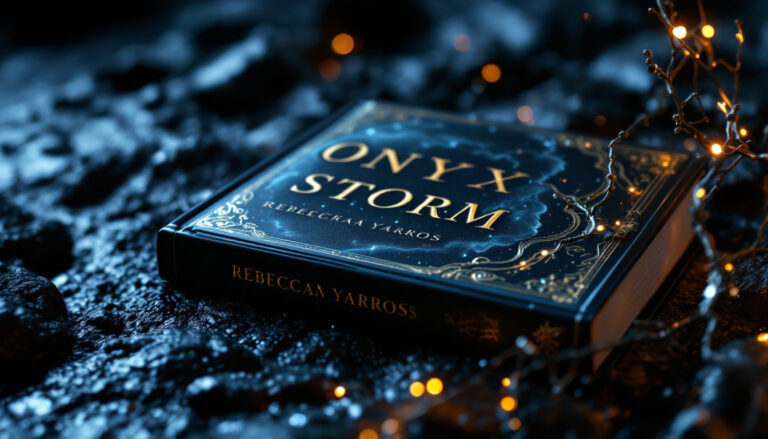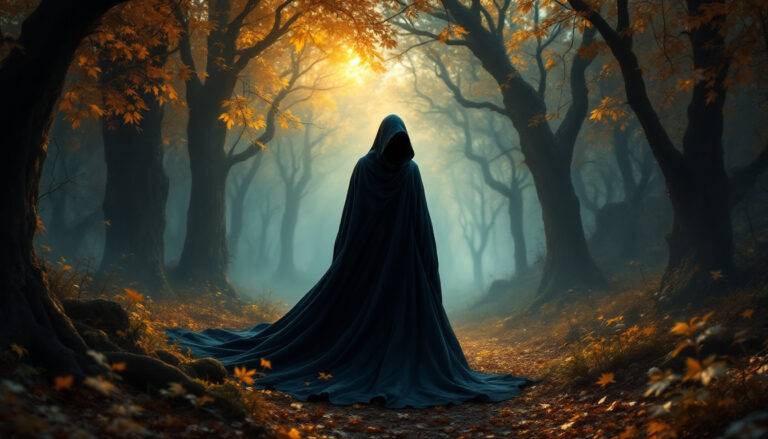Powerless by Lauren Roberts – A Fantasy Romance You Can’t Put Down
What happens when ordinary people are forced to compete in a world designed for the extraordinary? That’s the thrilling setup of Powerless by Lauren Roberts, a breakout book capturing the attention of fantasy-romance fans everywhere. Set in the divided kingdom of Ilya, where magical Elites dominate and powerless Ordinaries are exiled, the story follows Paedyn Gray as she takes on dangers far beyond her limits. With a high-stakes competition, forbidden secrets, and slow-burn romance, this debut weaves familiar fantasy tropes into a gripping tale. Whether you’re here for the action, the love story, or the drama, this review unpacks it all.
Overview of Powerless by Lauren Roberts
Lauren Roberts’ Powerless plunges readers into a world brimming with intrigue, danger, and magic. The kingdom of Ilya, torn between the powerful Elites and the downtrodden Ordinaries, sets the perfect backdrop for a tale that’s as mesmerizing as it is heart-wrenching. With unforgettable characters and a society grappling with scars of its past, this novel is bound to keep you hooked.
Setting the Stage: The Kingdom of Ilya
The Kingdom of Ilya is a land shaped by stark divisions. The Elites—individuals blessed with magical abilities—perch atop the societal hierarchy, reigning over the vulnerable Ordinaries. This separation goes far beyond social classes; it’s stitched into the very fabric of existence. The Ordinaries, devoid of powers, are seen as lesser and are routinely exiled in a practice known as the Purging.
This backdrop isn’t arbitrary. The divide stems from a catastrophic event known as the Plague. This mysterious curse ravaged Ilya, leaving devastation and magically altered survivors. Those who survived developed extraordinary abilities, creating the first generation of Elites. But with this newfound superiority came prejudice and fear, setting the stage for decades of oppression.
The world-building in Powerless is meticulously detailed. Roberts crafts a land where magical opulence contrasts sharply with the grim reality of the oppressed. From the majestic royal palace to the gritty streets where Ordinaries scrape by, every scene feels vivid and alive. It’s this duality that makes the world of Ilya so gripping.
For those looking to immerse themselves in a fantasy realm with rich world-building, the official publisher’s page offers insights that only deepen the intrigue.
Key Characters and Their Journey
At the heart of the story lies Paedyn Gray, a fiercely intelligent and resourceful Ordinary. Hiding in plain sight among the Elites, Paedyn is caught in the tug-of-war between survival and rebellion. Her keen mind and quick thinking make her an engaging protagonist, but it’s her vulnerability—her struggle with being powerless in a world that idolizes strength—that truly endears her to readers.
Enter Prince Kai, a character who could easily have been a one-dimensional royal but instead blossoms into much more. With a magnetic charm and rare magical abilities, he’s everything Paedyn isn’t. Yet, he isn’t just defined by his privilege. Through Kai, readers explore the burdens of expectation and the humanity beneath the crown.
Their intertwining stories are where Powerless truly shines. Though their initial interactions brim with tension, their relationship evolves in a way that feels natural, even fated. Roberts avoids tropes of insta-love, opting instead for a slow unraveling of trust, emotion, and loyalty.
It’s not just about romance though. Paedyn’s journey of resilience and Kai’s quest for self-discovery resonate universally. Together, they navigate challenges that force them to confront their deepest fears and desires. To gain more insight into these compelling characters, check out this guide to “Powerless” characters for a deeper dive.
Their dynamic plays out against a backdrop of rebellion, secrets, and high-stakes trials. It’s a stark reminder that who holds power often determines more than just victory—it dictates survival itself. With every chapter, readers become more invested, rooting for them to overcome their individual battles as well as the divides that separate them.
The Romance and Character Chemistry
Lauren Roberts doesn’t just tell a love story in Powerless—she builds it layer by layer, crafting a connection between Paedyn and Kai that feels as genuine as it does complex. Their romance evolves within the context of danger, secrets, and fierce competition, offering readers a journey that’s equal parts tension and tenderness. This isn’t just a typical love story tossed into a fantasy setting; it’s a critical thread in the fabric of the narrative.
Romantic Tropes and Their Execution
Roberts leans into some of romance’s most beloved tropes, including enemies-to-lovers and forbidden love, while bringing her unique spin to the table. These tropes resonate deeply with readers because they create immediate stakes—tension that hooks you from the beginning. The friction between Paedyn and Kai is electric from their first encounter, fueled by their opposing roles in a rigid and unjust society. Paedyn, a disguised Ordinary, and Kai, a privileged Elite prince, naturally come into conflict, each embodying the fractures within Ilya’s social hierarchy.
But Roberts doesn’t rely on cliches. Instead, she lets the romance unfold subtly, driven by biting banter, revealing moments, and reluctant teamwork. Their interactions initially bristle with suspicion but gradually shift into reluctant respect and simmering attraction. The gradual unraveling of their feelings mirrors the slow-burn romance trope, which is as refreshing as it is maddeningly satisfying. Readers revel in their stolen glances and heartfelt confessions, which provide a respite from the book’s high-stakes plot. To explore how these tropes remain central to good storytelling, check out Romance Tropes: The Heartbeat of a Genre.
Feedback from readers has been overwhelmingly positive, especially regarding the natural progression of Paedyn and Kai’s relationship. Their journey sidesteps the pitfall of insta-love, opting for a more nuanced approach. This choice makes their chemistry not only believable but emotionally engaging, leaving fans endlessly rooting for them. For a deep dive into how tropes influence romance storytelling, visit 20 Powerful Romance Tropes.
Character Dynamics and Growth
What sets Paedyn and Kai apart isn’t just their compatibility but how their relationship becomes a crucible for growth. Individually, they carry deep emotional scars—Paedyn, from her life of survival and constant vigilance, and Kai, from the weight of expectations as a leader in a flawed system. Together, they challenge and strengthen each other in profound ways.
Paedyn’s sharp wit and determination push Kai to question his privilege and reassess his role in Ilya’s oppressive regime. Similarly, Kai’s warmth and quiet strength serve as a lifeline for Paedyn, who struggles with feelings of inadequacy in a world designed to crush her. Their relationship functions as a mirror, reflecting the strengths and vulnerabilities they wouldn’t dare to confront alone.
Moreover, through their shared trials, we see the layers of their characters peel back. Moments of vulnerability—such as Paedyn allowing herself to open up about her pain—or Kai defying his upbringing to protect her—don’t just advance the plot but enrich the emotional stakes. The best romances aren’t just about being together but about becoming together. For examples of effective character relationships in fiction, read 9 Ways to Approach Relationship Dynamics in Fiction.
Roberts’ commitment to complexity ensures that neither Paedyn nor Kai feels reduced to a “romantic interest.” Each retains their agency, making their story feel balanced and equitable. This dynamic, where love becomes a source of transformation rather than a distraction, cements their bond as one of the novel’s greatest strengths. For further reading on compelling character partnerships, check out Five Relationship Dynamics for Stronger Romances.
Their chemistry isn’t just a subplot—it’s an exploration of how connection can bloom in even the most hostile environments, reflecting the resilience of the human spirit.
Strengths of the Book
Lauren Roberts’ Powerless is more than just a fantasy-romance novel; it’s a gripping narrative that thrives on its memorable moments and emotional connection with readers. The book’s ability to balance heart-stopping action, heartfelt dialogue, and reader appeal is what makes it a standout among recent BookTok favorites.
Noteworthy Moments and Dialogue
One of the hallmarks of Powerless is its striking dialogue and vivid scenes that refuse to fade from memory. Roberts crafts lines that are not just words on a page but emotional anchors that stick with readers. Take, for instance, the searing line, “Never forget that your wit is a weapon to be wielded if only your mind is as sharp as your blade” (Chapter 43). This isn’t just a quote; it’s a reflection of the story’s entire ethos, the idea that intellect can rival physical power.
Scenes packed with tension and vulnerability also amplify the book’s strength. One moment, Paedyn is sharpening her survival instincts in a high-stakes competition, and the next, she is navigating fragile alliances with Kai, her Elite counterpart. These moments strike a balance between grit and tenderness, giving readers the mix of adrenaline and intimacy they crave. Quotes like “Careful, highness. I wouldn’t wanna spill royal blood,” paired against Kai’s retort, “Careful, darling. You forget, spilling blood is what I do best,” define their dynamic with razor-sharp precision (Powerless Quotes Lauren Roberts).
The book might as well be a masterclass in creating tension while also humanizing its characters through powerful words. For readers and fans eager to immerse themselves further, Powerless quotes and highlights can be discovered on SuperSummary.
Audience Engagement and Appeal
What truly sets Powerless apart is its undeniable appeal to young adult and fantasy-romance aficionados. The book’s success in engaging its audience is a testament to Roberts’ understanding of what readers want—and it’s no surprise that this title has captured the hearts of BookTok enthusiasts.
For young adults, the themes of rebellion, identity, and navigating an unjust system resonate deeply, mirroring real-world struggles in a fantastical setting. Add in a slow-burn enemies-to-lovers romance, and you have the perfect recipe for emotional investment. Roberts’ ability to create chemistry between Paedyn and Kai feels genuine, as their relationship unfolds gradually, mirroring the audience’s own yearning for authentic connections.
On platforms like BookTok, Powerless has thrived because of its digestible yet emotional content. Fans have spun countless posts and memes around its iconic moments, fueling its popularity. This online community thrives on engaging stories that balance relatable characters with awe-inspiring stakes, and Powerless delivers at every turn. As noted in a Reddit discussion, many readers discovered the book through viral recommendations and stayed for the depth of its storytelling.
This BookTok presence draws an even wider audience, encouraging casual readers to dive into fantasy-romance. The book’s universal themes of love, sacrifice, and survival make it easy to recommend and hard to put down. For insights into Roberts’ creative choices and her relation to the BookTok phenomenon, check out this interview with the author.
With its blend of sharp dialogue, gripping scenarios, and a powerful online fanbase, it’s clear why Powerless continues to dominate the YA fantasy market. It doesn’t just entertain—it resonates, making readers feel seen even amidst magical chaos.
Criticisms and Areas for Improvement
Every great book sparks discussion, and Powerless by Lauren Roberts is no exception. While there is much to admire in this debut, some readers have noted areas where the book could shine brighter. These criticisms, while subjective, offer valuable insights into the elements that could be further refined.
World-building Shortcomings
World-building is the lifeblood of any fantasy novel, setting the stage for every conflict and triumph. In Powerless, Roberts paints the kingdom of Ilya vividly, but some readers argue that certain aspects lack the depth necessary to make the world truly immersive.
For example, the Plague, which fundamentally reshaped the kingdom and birthed the Elites, remains largely unexplored. Why did the Plague affect some and not others? How has it shaped the culture and politics beyond the immediate divide of Elites and Ordinaries? These are questions that linger unanswered. Similarly, the Purging Trials, a key element driving the plot, could have been fleshed out further. Readers are introduced to the danger and stakes of these trials, but the underlying rules or history behind them remain somewhat vague. Without these critical details, the trials sometimes feel more like a convenient plot device than a lived-in aspect of Ilya.
Balance is key in world-building. Too much detail, and the narrative risks becoming bogged down. Too little, as some reviewers suggest here, can make the world feel like a backdrop rather than an active part of the story (read this perspective on world-building).
Adding greater nuance to these elements could have deepened readers’ connections to Ilya. By grounding these aspects more firmly within the narrative, Roberts may have elevated the stakes even further, anchoring the story in a richly developed world that lingers long after the final page. Insights on balancing world-building in fantasy can be found in this resource.
Use of Familiar Tropes
Fantasy as a genre thrives on tropes, and Roberts isn’t shy about using them. Familiar themes like enemies-to-lovers, hidden identities, and the underdog rising against the odds are woven throughout Powerless. These elements bring an instant sense of recognition and appeal to fans of the genre.
However, relying too heavily on tropes can be a double-edged sword. While readers may love the comfort of well-known themes, they might also crave surprises and twists that subvert expectations. Some critics felt that Powerless leaned a little too predictably on these conventions at times, which made certain story beats feel overly familiar. Did the book rely so much on archetypes that it missed opportunities to innovate? That’s up for debate.
Yet by no means does this mean Roberts failed. Tropes are, after all, tropes for a reason—they work. Many readers relish seeing their favorite dynamics unfold, provided they’re well-executed. For instance, Paedyn’s banter with Prince Kai keeps the enemies-to-lovers trope fresh, and her defiance as an Ordinary amidst the Elites brings a relatable layer to the underdog narrative. To explore the fine line between using tropes and overusing them, check out this guide on revitalizing fantasy tropes.
It’s a delicate balance. While Powerless succeeds in tapping into the familiar beats fans love, there’s room for the series to embrace more originality in subsequent installments and surprise readers in unexpected ways. Discover more about effectively combining originality and tropes in this guide.
Editing and Writing Style
Lauren Roberts’ writing deserves credit for its sharp dialogue and emotional moments, but no book is without its flaws—especially a debut. Some readers noted that the pacing was uneven, with certain sections dragging while others rushed through significant events. For instance, parts of the story that dive into Paedyn’s internal struggles slow the rhythm, while action-heavy moments sometimes feel abrupt, preventing the tension from fully building.
Additionally, the dialogue, while often witty and heartfelt, doesn’t always capture the distinct voices of the characters. Some critics argued that certain exchanges felt overly polished or unrealistic, as though the characters were speaking in idealized terms rather than authentic human interaction. This is a common pitfall, especially in fantasy, where stylized language often competes with realistic conversations.
Another area for critique lies in scene progression. While Roberts excels at building tension, some transitions between scenes felt abrupt, potentially disorienting the reader. A bit more breathing room between key moments could have allowed the stakes and consequences of each scene to sink in fully.
Many of these critiques are reflective of challenges faced by debut authors, and they don’t diminish the strong foundation Roberts has laid. Crafting a polished story is no small feat, and with time and refinement, these areas can only improve. To better understand the writing and editing challenges most authors face, visit this ultimate guide to editing.
Even with these critiques, it’s clear that Roberts possesses a raw storytelling ability that resonates with readers. Minor adjustments in pacing, dialogue, and transitions could elevate her work to even greater heights, making Powerless not just enjoyable, but truly unforgettable. Learn more about self-editing techniques in this article.
Comparison to Similar Works
When discussing Powerless by Lauren Roberts, one can’t help but draw parallels to other popular young adult fantasy titles. Books like Red Queen by Victoria Aveyard, The Hunger Games by Suzanne Collins, and Shatter Me by Tahereh Mafi share overlapping themes and character dynamics, offering the perfect canvas for comparison. Let’s explore what connects these works—and what sets Powerless apart.
Shared Themes and Archetypes
One common thread between Powerless and its contemporaries is the exploration of power imbalances in deeply fractured societies. Each story presents a world divided by hierarchies, where the “haves” hold power while the “have-nots” struggle for survival.
- In Powerless, the kingdom of Ilya separates Elites, those with extraordinary abilities, from the powerless Ordinaries. This mirrors the division in Red Queen, where the Silvers dominate society with their godlike powers while the Reds, ordinary individuals, are subjugated. Both worlds highlight the devastating impact of inequality and the rebellion it spurs.
- In The Hunger Games, districts are oppressed by a tyrannical Capitol. Here, the theme of rebellion against a controlling force is clear, much like the resistance fermenting in Powerless. Just as Katniss reluctantly becomes a symbol of resistance, Paedyn’s journey as an Ordinary in a world of Elites examines similar themes of reluctant leadership.
- Then there’s Shatter Me, where Juliette Ferrars is ostracized for her touch, which is lethal. Like Paedyn, Juliette comes to understand her value despite living in a world that sees her as less than—or dangerous. Both characters are framed around the idea of inner strength overcoming external rejection.
Another shared theme is resilience in the face of oppression, although each story handles it uniquely. Whether it’s Mare Barrow (Red Queen) discovering her hidden ability, Katniss (The Hunger Games) strategizing to outwit the Capitol, or Paedyn staying one step ahead of exposure among the Elites, these narratives underscore the grit required to challenge impossible odds.
For deeper insights into how characters like Paedyn reflect these themes, check out this analysis of Powerless characters.
Unique Features of Powerless
While Powerless feels familiar in its thematic DNA, it sets itself apart through subtle but significant choices.
- Romantic Undertones with Depth
Unlike the love triangles in The Hunger Games or Red Queen, the romance in Powerless is grounded in tension and growth instead of melodrama. Paedyn’s dynamic with Prince Kai feels deliberate and poignant, avoiding the overly dramatic twists often found in YA fantasy romances. The slow-burn nature of their relationship mirrors the emotional layering seen in Shatter Me, but its execution feels more restrained and realistic. For more detail on how romance is woven into the plot, visit Unveiling the Strength of Paedyn. - Motivational Nuance in the Protagonist
Paedyn’s motivations run deeper than mere survival or rebellion. Her intelligence and resourcefulness are emphasized as much as her vulnerability, making her a less traditional YA heroine. Unlike Katniss’ immediate hunger to protect her family or Mare’s struggle with sudden power, Paedyn grapples with a quieter, more internal rebellion. This nuanced view of strength sets her apart from more archetypal protagonists. - Distinctive Power Hierarchies
The Elites versus Ordinaries narrative is central to Powerless, but it’s executed differently from the Silvers versus Reds of Red Queen. Roberts anchors magical superiority in the fallout of the Plague, weaving origin and consequence across both groups. This distinction grounds her world-building in a cause-and-effect narrative that goes beyond a simple “us vs. them” framework. For insights on how Powerless conceptualizes authority and magic, read this theme breakdown. - Themes of Camouflage and Deception
A core element of Powerless is Paedyn’s need to hide her identity. This is reminiscent of Juliette in Shatter Me but with a more external focus. Where Juliette’s struggle is internal as she balances self-worth with fear of hurting others, Paedyn dodges a literal, physical threat as an Ordinary surrounded by enemies. This tension adds an element of spy thriller energy to the novel, differentiating it from its peers.
Ultimately, Powerless may borrow from similar books in terms of overarching concepts like rebellion, societal hierarchies, and emotional romance. Still, it thrives by bending these concepts into something wholly unique, particularly in its treatment of character motivations and nuanced relationships.
Fans of The Hunger Games, Red Queen, or Shatter Me will likely find Roberts’ work a comfortable yet refreshing addition to the YA fantasy canon. Dive further into this conversation on comparisons in this Reddit thread.
Anticipated Sequel: Fearless
The upcoming sequel, Fearless, promises to elevate the intensity and emotion of Lauren Roberts’ Powerless. Fans are eager to return to the broken yet captivating kingdom of Ilya, where magic, betrayal, and resilient love hold the story together. With several unresolved threads and a world that feels ripe for deeper exploration, Fearless could cement the trilogy’s legacy among modern YA fantasy favorites.
Lingering Questions from Powerless
As Powerless ended, readers were left with several unanswered questions that hint at what might unfold in Fearless. These unresolved moments span character development, political intrigue, and personal stakes, leaving fans itching for answers. What are some of the mysteries readers hope Lauren Roberts will address?
- The Fate of Paedyn’s Identity
The secret of Paedyn’s true nature as an Ordinary infiltrating an Elite society left readers on edge. Her survival depended on deception—a risky act that held dire consequences. What consequences will she face if her secret is revealed on a larger scale? Will she leverage her resourcefulness to secure allies, or will this deception become her undoing? - Kai’s Role as a Leader
Prince Kai’s journey is far from complete. While his growing connection with Paedyn hinted at an emotional awakening, it clashed with his responsibilities as a royal and his loyalty to the Elites. How will Kai navigate loyalty to his family and kingdom while grappling with guilt, love, and the possibility of rebellion? His transformation could potentially redefine the foundations of Ilya. - The Purging Trials and Their Secrets
The trials designed to weed out Ordinaries posed some of the cruelest moments in Powerless, but their purpose and intricacies were only partially explored. What is the true history behind these trials? Are they limited to subjugation, or do they serve a darker purpose linked to the Plague that devastated the kingdom? These questions could unlock hidden layers of Ilya’s history and reshape the story’s stakes. - The Plague’s Origins
Readers are left wondering about the mysterious event that altered Ilya, giving rise to the magical Elites and dooming the powerless Ordinaries. Could there be more to this origin? Is the Plague a natural phenomenon, or was it something deliberately created? Speculation has led many fans to expect deeper revelations about this cataclysm in the forthcoming book. - Tensions Among the Rebel Forces
The seeds of rebellion planted in Powerless hinted at mounting resistance against the Elites’ rule. However, the dynamics within the rebellion were only briefly touched upon. Which factions may betray each other? Will Paedyn and Kai find themselves torn between competing loyalties? Fans anticipate a greater focus on the politics within and beyond these opposing forces.
For insights into how Powerless set up these unresolved arcs, see this ScreenRant article. The twists and turns surrounding Paedyn and Kai’s stories leave much to unravel in Fearless.
Potential for Growth in the Trilogy
Lauren Roberts teased glimpses of Ilya’s rich cultural and political landscape in Powerless, but there’s abundant opportunity to expand these elements in the sequel. Fans are curious about how the sequel could deepen its world-building, further evolve its characters, and amplify overarching themes of power, love, and rebellion.
World-Building: Beyond the Borders of Ilya
The kingdom of Ilya serves as an intriguing but confined setting, with most of the action limited to select locations. Expanding beyond its borders could introduce neighboring regions with their own politics and cultures. What if the Elites’ dominance over Ordinaries stretches beyond Ilya itself? Exploring alliances or rivalries with external kingdoms could raise the stakes and set the stage for wider conflicts.
Additionally, deeper dives into Ilya’s traditions, governing systems, and the origins of its stark class divide could make the world feel even richer. One way Fearless could achieve this is by shedding light on the ancient rituals surrounding the Purging Trials. Did these begin as a necessity, or were they a means of control from the start? By answering these questions, Roberts could weave additional layers of tension into the narrative.
For insight into enriching fictional settings, the specifics of Roberts’ approach might surprise readers. See a breakdown of her style on The Powerless Trilogy Wiki.
Character Development: Growth Through Struggle
Both Paedyn and Kai are primed for stories of self-discovery and transformation, offering a wealth of material for character development. In Fearless, Paedyn’s already impressive resourcefulness could evolve further as she battles physical threats and emotional turmoil. Will she learn to trust others completely, or will the isolation that came with her secret identity continue to shape her choices?
Similarly, Kai’s arc seems poised to dive deeper into the moral compromises of leadership. His chemistry with Paedyn hinted at a willingness to question his family’s authority, but what happens when loyalty to love collides with duty to his people? Readers are eager to see how their relationship evolves as they confront challenges that threaten their budding bond.
Moreover, side characters like Adena and supporting members of the rebellion are expected to play significant roles moving forward. Adding depth to their arcs will not only enrich the emotional stakes but broaden the thematic tapestry of the trilogy.
Themes: Love and Choice Under Pressure
Love was a central theme in Powerless, but it didn’t shy away from portraying the sacrifices love often demands. In Fearless, this exploration could grow even weightier. Are Paedyn and Kai’s sacrifices destined to unite or tear them apart? The balance between their individual survival and collective ideals poses a riveting theme likely to resonate throughout the sequel.
The question of power and who deserves to wield it is another theme ripe for expansion. Following Kai’s internal conflict over the Elites’ oppression, Fearless could tackle the gray areas of morality. Can the system of governance in Ilya be reformed, or will tearing it down entirely be the only way forward? Exploring ethical dilemmas framed within fantasy’s lens is bound to challenge both its characters and readers.
To continue speculating on the growth and future development of the series, visit Goodreads’ Fearless overview.
With Fearless on the horizon, Lauren Roberts has the chance to build on her debut’s promise, offering an emotionally charged and intricately layered continuation that cements the trilogy’s place in fantasy-romance canon.
Conclusion
Powerless by Lauren Roberts is more than a tale of magic and romance—it’s a story that examines power, identity, and the courage to fight for change in an unjust world. With its distinctive blend of high-stakes action and authentic emotional stakes, it holds its own in the fantasy-romance genre.
While the book doesn’t shy away from familiar tropes, it refreshes them through engaging characters like Paedyn Gray, whose journey offers a raw, relatable portrait of resilience and defiance. The chemistry between her and Prince Kai is slow-building, heartfelt, and layered, elevating the narrative beyond standard genre fare. However, readers seeking intricate world-building might find themselves wanting more depth in some areas, particularly regarding the origins of Ilya’s fractured society.
This debut is a great pick for fans of Red Queen and The Hunger Games, as well as those who love romantasy with genuine emotional grit. For anyone who’s ready to lose themselves in a story filled with tension, secrets, and fiery character dynamics, Powerless is worth the hype. Its themes will stay with you long after the final page, and the promise of a deeper dive in the sequel, Fearless, leaves us eagerly waiting for what’s next.
What did you think of Paedyn’s journey? Share your thoughts below—or grab a copy and discover her story for yourself.







